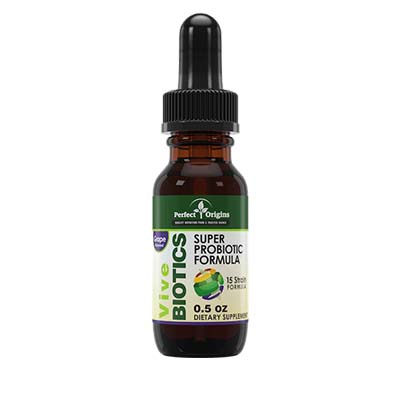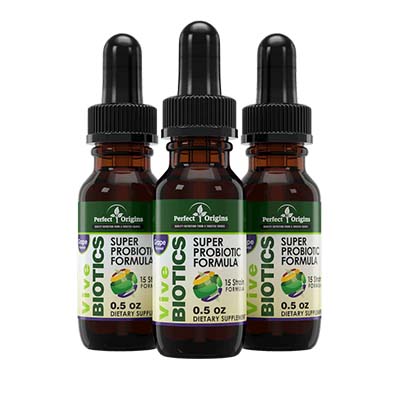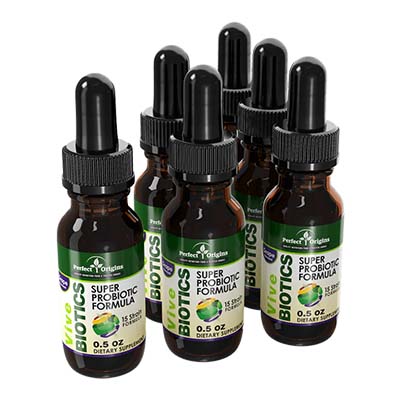Frustrated…because you’re constipated?
Many folks have experienced that feeling, and frustration doesn’t begin to cover it.
If you’ve ever had trouble emptying your bowels, you know that this isn’t just a bathroom issue.
Constipation can affect every area of your life as this, not so uncommon problem can cause gas, bloating, pain in your lower back, nausea, fatigue, and even anxiety.
When plagued with constipation and its accompanying symptoms, you need relief! But, rather than scouring the over-the-counter medicine aisle at your local pharmacy, perhaps you should opt for the grocery aisles instead.
That’s right, the common problem of constipation can often be solved through your diet!
So, let’s take a closer look at what causes constipation and exactly which items you can incorporate into your diet to bring you some much needed relief.
Constipation And Its Causes
If you’re having less than three bowel movements in a given week or your stool is often hard or dry, this is what is referred to as constipation.
Constipation occurs when your body moves waste through your digestive tract more slowly than normal, which can result in bowel movements that are infrequent and painful or difficult to pass.
Many people, up to 20% of adults in the US alone, experience constipation frequently.
- As you age, you can experience constipation due to both a slowed metabolism and a drop in strength of muscle contraction along your digestive system.
- Women can experience constipation due to shifts or changes in hormone production during pregnancy and then after childbirth as well.
- Both neurological and digestive disorders can often lead to constipation.
- An inactive lifestyle can cause an inability to frequently move your bowels.
- High stress levels can cause constipation.
- The use of many different medications, both prescription and over the counter, can also lead to constipation.
But, possibly the biggest cause, and thus the easiest remedy, of constipation is a poor diet.
- Alcohol
- Caffeine
- Dairy products
- Foods high in sugar
- Foods high in fat
- Typical “junk foods”
All of the above listed foods and drinks can be detrimental to your digestive health, thus leading to constipation.
And, what you don’t eat or drink can contribute to constipation as well, namely not consuming enough fiber-rich foods or drinking enough water.
But, one category of foods that is often overlooked when it comes to relieving constipation is probiotics.
You see, these healthy bacteria (probiotics) keep your immune system working optimally, boost the overall health of your digestive system, and they regulate inflammation, a common cause of constipation in those experiencing ulcerative colitis and inflammatory bowel disease.
And, specifically referring to their role in the health of your digestive system, part of the job of these healthy bacteria is to keep your bowels functioning properly.
However, when the good and bad bacteria within your gut become unbalanced (with the scale tipping in favor of the bad bacteria) this can cause cramping and can slow down the overall time it takes for food and waste to move through the intestinal tract.
During this slowed transit time, your colon can absorb too much water from the waste moving through it (your stool), thus making it harder to expel from your body, which we recognize as constipation.
It is no wonder then that studies have found probiotic usage to effectively soften stools and increase the number of bowel movements weekly in those persons adding them to their diet.
Consider adding items from the following list of probiotic and prebiotic rich foods to your (healthy) diet to both nourish the levels of good bacteria in your gut, helping them to thrive, and balance your overall gut microbiome, thus providing you with constipation relief (and overall health)!
1- Kefir

Kefir is a fermented beverage. It is often thought of as a fermented dairy drink, but kefir can be made from plant based milks as well.
Kefir is made when probiotic bacteria cultures like lactobacillus kefiri (thus kefir) are added to any variety of milk, which is then fermented.
Grains of probiotic are then strained out after the milk has fermented, which can contain up to 61 strains of bacteria and yeasts, making kefir a potential probiotic powerhouse!
2- Kimchi

Might as well keep the ‘k’ theme going on this list as kimchi is another excellent source of probiotics, a very delicious one too, if you ask me!
A traditional Korean food, kimchi is made by fermenting cruciferous vegetables like napa cabbage and radishes. Other healthy additions like garlic, ginger, and red pepper are also often found in kimchi.
Many bacteria are used in the kimchi fermentation process, but LAB or lactic acid bacteria are believed to be the primary bacteria involved in making this probiotic-rich food.
3- Sourdough Bread

Real sourdough bread begins with what is known as a starter. And, this starter contains probiotics, namely lactobacillus bacteria.
Though the baking process is thought to diminish the effectiveness of these probiotics, thankfully this wonderbread also contains prebiotics which help to feed the good bacteria found in your gut.
It is worth noting, however, that most store-bought sourdough bread is insufficient in this gut health helper, so homemade sourdough is generally accepted as the best option here.
4- Bone Broth

Though not a traditional item on a probiotic-rich food list, bone broth is definitely a gut health enhancer, so hear me out.
Bone broth not only provides hydration to your gut, which can help to soften your stool, but it also contains effective amounts of gelatin.
The gelatin in bone broth breaks down into collagen which can repair cell damage and contains amino acids that soothe inflammation in the lining of your digestive tract.
5- Miso

The probiotics in miso are often noted in relation to their aid in reducing symptoms of inflammatory bowel disease.
Often used in Asian cuisine, miso is made from fermented soy beans.
Though loaded with valuable vitamins and minerals, its boost to gut health is linked to a probiotic strain called oryzae, specifically known for its benefit to the good bacteria within your gastrointestinal tract.
6- Kombucha

Kombucha is a fermented tea made from the combination of sweetened tea and a scoby (symbiotic colony or culture of bacterial yeasts) which contains probiotics that improve your digestive health by balancing the microbiome of the gut.
And, as I’m sure your eyebrows are raising here at the notion of a sweetened tea being beneficial to your gut health, just know that during the fermentation process, those sugars are converted by the microorganisms in the scoby into ethanol and acetic acid.
This conversion and fermentation is then responsible for the classic sour or vinegar-like taste of kombucha.
7- Sauerkraut

Much like kimchi, with a bit more sour and a lot less spice, sauerkraut is essentially fermented cabbage. In fact, the name sauerkraut is a German word which translates to English as soured cabbage.
Unpasteurized sauerkraut can contain up to 28 different strains of probiotic bacteria in one serving, which are known to improve digestion by balancing good and bad bacteria within the gut.
Like most fermented foods, sauerkraut also contains enzymes that aid in digestion as well, promoting the overall health of your gastrointestinal tract.
8- Aged Cheeses

Many cheeses are considered to be fermented due to the process incorporated in making them, however, this doesn’t mean that all cheeses qualify as a probiotic.
Probiotic-rich cheeses include those with a label indicating contents of live and active cultures.
Some cheeses that include probiotic bacteria able to survive the aging process include gouda, swiss, some cheddars, and parmesan. These cheeses begin with a starter culture containing lactic acid bacteria which is thought to aid in inflammation reduction within the gut.
9- Fiber-rich Fruits And Vegetables

I know, I know…this selection is vague and doesn’t seem to fit the probiotic list, but fiber-rich plant foods like leafy greens, broccoli, green beans, berries, pears, and apples not only contain insoluble fiber which is full of nutrients essential to a healthy digestive system, but they are also loaded with prebiotic fiber.
Prebiotic fiber from plants helps the good bacteria in your gut to thrive. This not only keeps the bacteria within your gut balanced, but it also changes the level of acidity within your gut, improving the consistency of your stool and the frequency of your bowel movements.
10- Vive Biotics

Let’s face it, not everyone loves probiotic-rich foods. And, for those that do enjoy these gut health enhancers, sometimes you just can’t get enough of them into your diet to result in the relief you’re seeking when it comes to constipation.
In such cases, a top notch probiotic supplement can be beneficial, even crucial.
Vive Biotics not only inhibits the growth of bad bacteria, but also helps to stop bloating and improve overall digestion.
Containing 15 extremely unique strains of bacteria, Vive Biotics balances the levels of good and bad bacteria that make up the microbiome of your gut. By supporting your body’s natural process of digestion, Vive Biotics aids in nutrient absorption and proper transit time for waste to pass through your intestinal tract.
Recap
Constipation plagues many people, and this frustrating and uncomfortable problem can be caused by a number of triggers such as:
- Age
- Hormones
- Stress
- An inactive lifestyle
- Neurological and digestive disorders
- OTC and prescription medications
- A diet high in sugars, fats, alcohol, and dairy
- Dehydration
- A diet lacking probiotic-rich foods
Balancing your gut microbiome, reducing the number of bad bacteria and promoting the growth and function of good bacteria, can:
- improve your overall digestive health
- increase your body’s ability to absorb nutrients (improving overall health)
- effectively relieve constipation by softening stool and increasing the frequency of bowel movements
You’ve heard the saying “a happy wife means a happy life,” right? Well, a happy gut means happy bowel movements!
So, relieve constipation by treating your gut well, fueling your body with probiotic-rich foods, drinks, and/or a supplement such as Vive Biotics, containing a multitude of diverse, unique digestive health-enhancing strains of probiotics.
Protect your gut from toxins and their damaging effects with Vive Biotics!
References:
- https://draxe.com/health/natural-constipation-relief-remedies/#What_Is_Constipation
- https://www.healthline.com/nutrition/probiotics-for-constipation#bottom-line
- https://www.lifehack.org/837980/what-to-eat-when-constipated
- https://my.clevelandclinic.org/health/diseases/4059-constipation
- https://www.everydayhealth.com/digestive-health/constipation-causes.aspx#
- https://www.health.harvard.edu/blog/probiotics-may-ease-constipation-201408217377
- https://www.biogaia.com/health-areas/probiotic-gut-health/constipation/
- https://www.verywellhealth.com/foods-to-ease-constipation-4143121
- https://www.health.com/condition/digestive-health/the-20-best-foods-to-help-with-constipation-so-you-can-finally-poop-again
- https://www.healthline.com/nutrition/9-health-benefits-of-kefir#TOC_TITLE_HDR_3
- https://wearejetson.com/blogs/the-digest/everything-about-probiotics-and-constipation
- https://pubmed.ncbi.nlm.nih.gov/24456350/#
- https://truesourdough.com/does-sourdough-contain-probiotics-and-is-it-good-for-your-gut/
- https://www.medicalnewstoday.com/articles/323903#gut-health
- https://www.normanregional.com/blog/why-kombucha-is-good-for-your-gut#
- https://www.webmd.com/digestive-disorders/ss/slideshow-probiotics
- https://www.healthline.com/nutrition/benefits-of-sauerkraut#2.-Improves-your-digestion
- https://www.goodhousekeeping.com/health/diet-nutrition/a33949065/miso-health-benefits/#
- https://www.healthline.com/nutrition/11-super-healthy-probiotic-foods#TOC_TITLE_HDR_12
- https://www.ncbi.nlm.nih.gov/pmc/articles/PMC3417654






